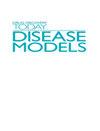大型动物模型测试机械循环支持装置
Q3 Pharmacology, Toxicology and Pharmaceutics
引用次数: 1
摘要
机械循环支持装置(MCS)广泛应用于心力衰竭患者的治疗。动物研究对MCS设备的开发至关重要。为了确保这些实验取得好的结果,必须考虑许多因素。在这篇综述中,我们讨论了目前关于评估大型动物MCS装置的理想手术方法、大型动物与人类之间的血液动力学和实验室差异、大型动物心力衰竭模型以及开发新的长期MCS装置的研究设计的争论。本文章由计算机程序翻译,如有差异,请以英文原文为准。
Large animal models to test mechanical circulatory support devices
Mechanical circulatory support (MCS) devices are widely used to treat patients with heart failure. Animal studies have been essential to the development of MCS devices. A number of factors must be considered to ensure good results from these experiments. In this review, we discuss current debates on what might be the ideal surgical approach to evaluating MCS devices in large animals, the hemodynamic and laboratory differences between large animals and humans, heart failure models using large animals, and study designs for developing new long-term MCS devices.
求助全文
通过发布文献求助,成功后即可免费获取论文全文。
去求助
来源期刊

Drug Discovery Today: Disease Models
Pharmacology, Toxicology and Pharmaceutics-Drug Discovery
自引率
0.00%
发文量
0
期刊介绍:
Drug Discovery Today: Disease Models discusses the non-human experimental models through which inference is drawn regarding the molecular aetiology and pathogenesis of human disease. It provides critical analysis and evaluation of which models can genuinely inform the research community about the direct process of human disease, those which may have value in basic toxicology, and those which are simply designed for effective expression and raw characterisation.
 求助内容:
求助内容: 应助结果提醒方式:
应助结果提醒方式:


